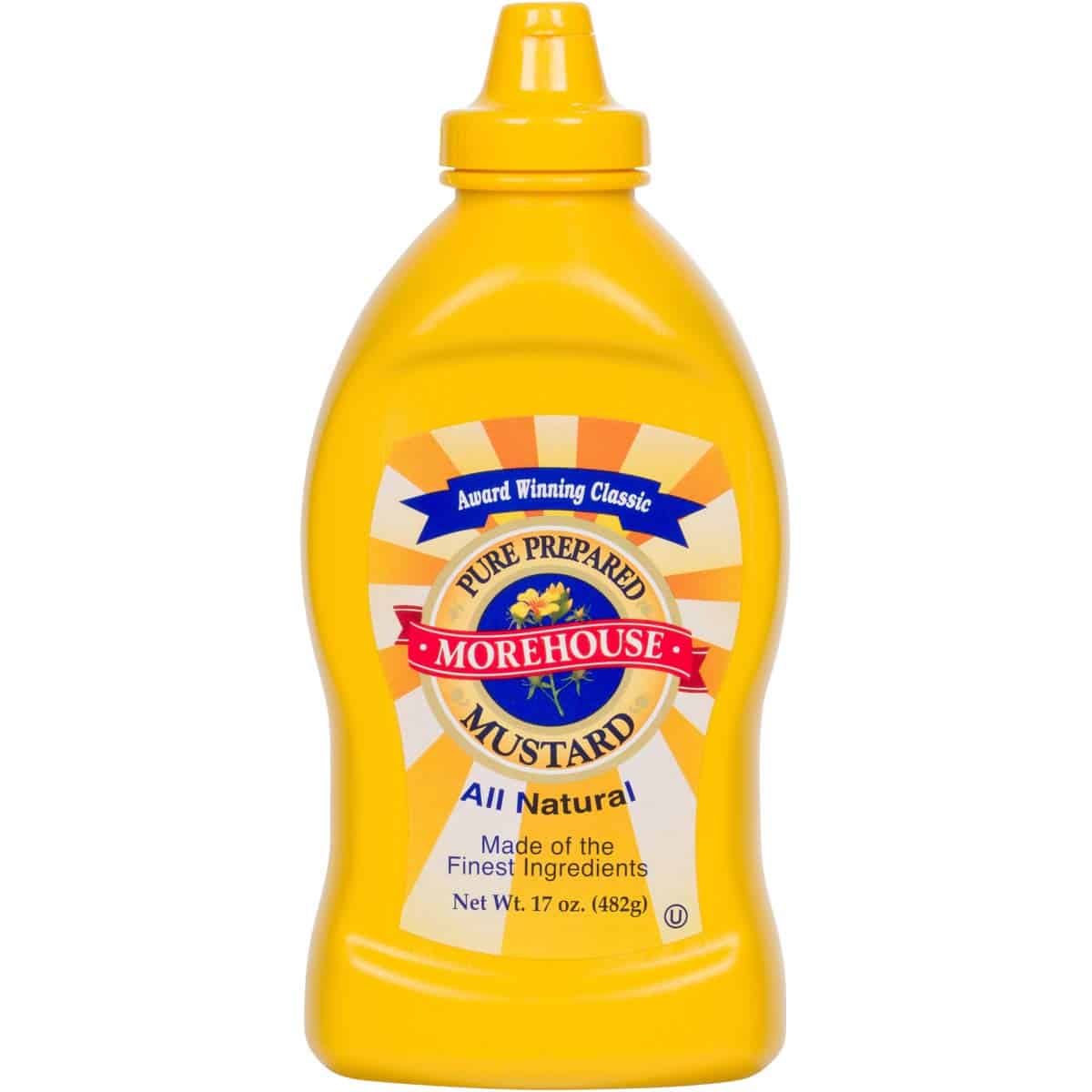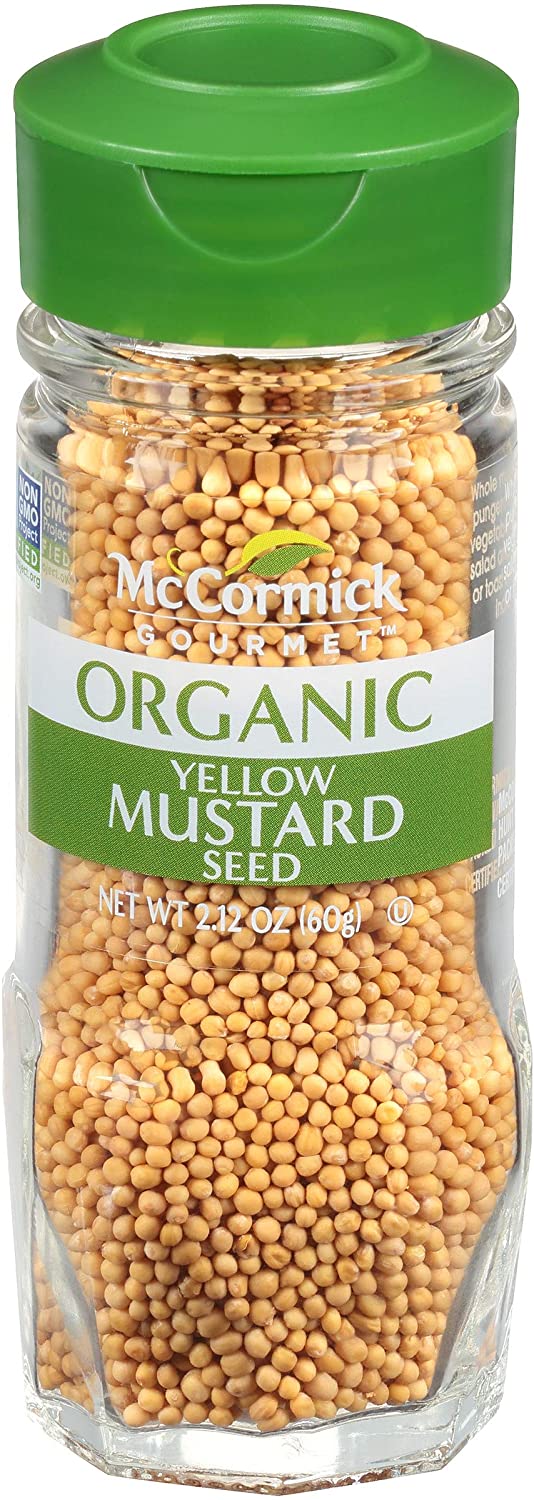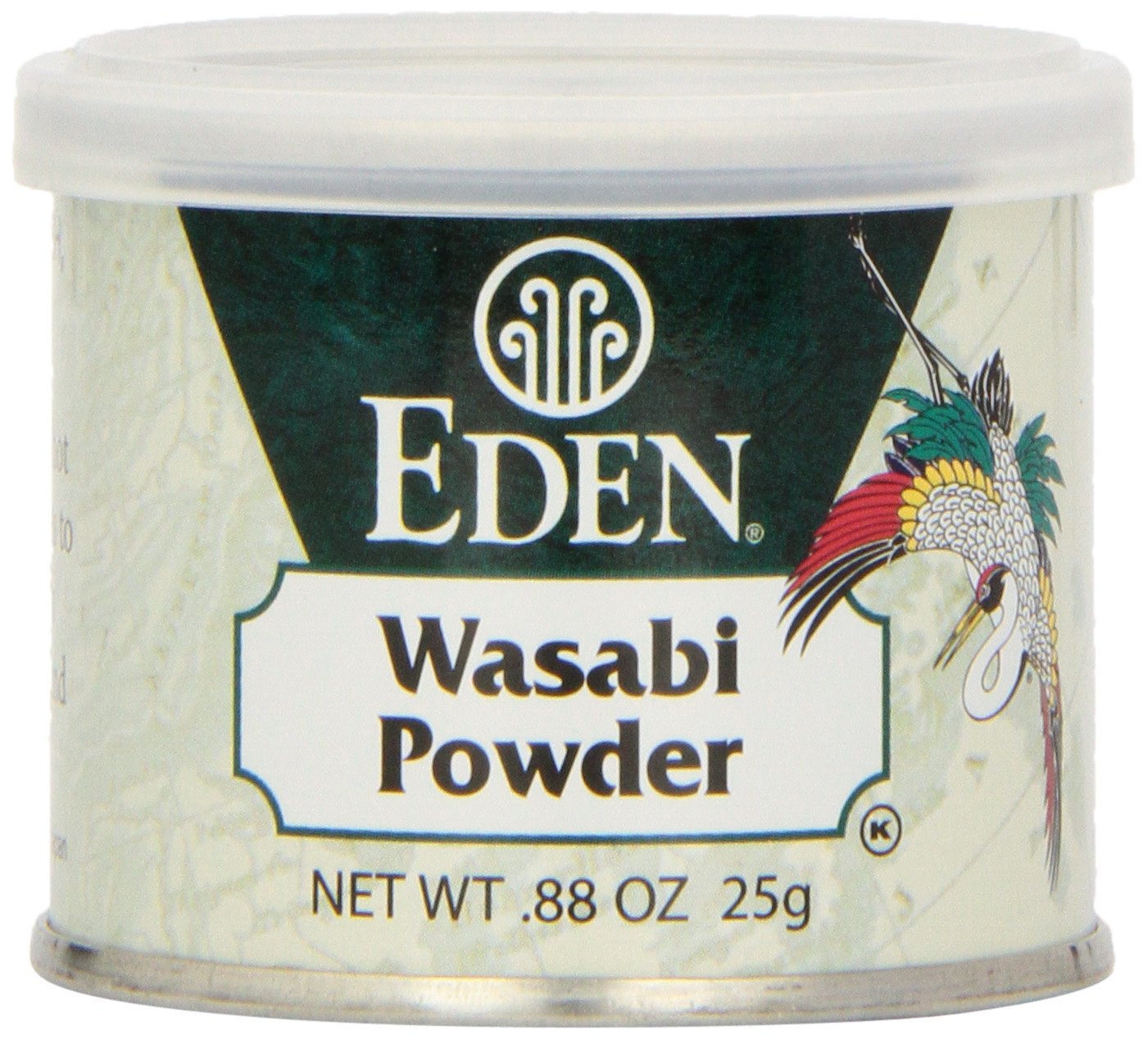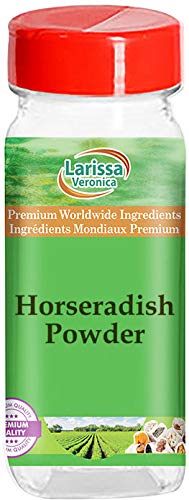Ground mustard is one of the most powerful spices in the gourmet world. When added to recipes, it gives it a kick with a strong aroma and taste. And it comes in different varieties to match your preferences. But what exactly is it? How do they make it? And what can you substitute if you’ve run out of it?
Ground mustard – the basics
Ground mustard, also known as a mustard powder or dry mustard, mustard seeds ground to powdered form. This powder is usually combined with other ingredients to make the common mustard you see in restaurants and grocery stores. Mustard seeds are of three kinds, namely yellow, brown and black. Of the three, yellow mustard is the mildest and is probably why it’s most popular in America and the British regions. The brown and black mustard are spicier, with the black being the strongest. These types are popular in Asia and the Mediterranean places renowned for dishes that pack a spicy punch. Whether spicy or less, all mustard comes with a base flavor profile of pungent, tangy taste.
Ground mustard uses
Ground mustard has a wide variety of uses in numerous exotic recipes. It’s commonly added to sauces and soups. It can be used as a dry rub for meats and fish. It’s also a popular seasoning for pickles, salad dressings, and vinaigrette. It’s also the chief ingredient for making prepared mustard, a popular ingredient in many classic American and British recipes. And while yellow mustard is useful in giving a jump-start to the taste of most dishes, the brown and black mustard powders are renowned for their hotness and strong presence.
Ground mustard is also high in nutrients like calcium and potassium. Adding mustard powder to recipes contributes to developing strong bones and improving joint and muscle health. Mustard, in general, has rubefacient properties, which makes it great for relieving any type of muscle spasm.
Ground mustard is popularly used in various recipes, which include;
- Red wine sauce
- Dips
- Sauces
- Chicken vinaigrette
- Fish stews
- Sandwiches and Burgers
- Seafood dishes
- Mushroom soup
- Mayonnaise
- Steak
- Macaroni and cheese
- Scones
- Salads
Ground mustard substitutes
Different reasons can make you consider substitutes for ground mustard. Perhaps you decided to try out a new recipe, and it specifically requests for it. Or maybe you’re already a regular user and happened to run out of supply in between the cooking process. It may also be that you have an allergy to mustard in general, and for safety reasons, you must omit it completely from your diet. Whichever the case, you’ll find these substitutes to be ideal for replacing ground mustard in many recipes;
Regular prepared mustard
If the drawback is you’ve run out of ground mustard in your kitchen, then using regular mustard is your quickest fix. You stand a strong chance of having a bottle of regular yellow mustard in your fridge or on your kitchen counter, so it does come in handy in such situations. And it’s perfect for wet recipes like marinades, soups, sauces, and stews. Yellow prepared mustard, which is the most popular type found in homes, is milder than ground mustard in flavor, but there’s a trick to using it. Substitute one tablespoon of yellow mustard for one teaspoon of ground mustard, then omit one teaspoon from your recipe because regular mustard has liquid. It may affect the consistency of your recipe.
When using prepared mustard, Dijon is the closest in taste to ground mustard. And if you’re using either the brown or black prepared mustard or types with blended spices, consider how the flavor may be affected by the extra spiciness, so use less than you would yellow mustard.
Mustard seed
Not many people tend to have mustard seeds lying around their kitchen, but if you happen to, then your search is over. With a coffee or spice grinder, you can easily grind the mustard seeds to your preferred smoothness, then scoop the needed quantity for your recipe. Plus, you even get to keep the rest for the sake of another time. This option is best for dry spice rubs where you can’t use wet mustard. Yellow mustard seeds are the mildest, while brown and black are stronger. Unless the recipe specifically asks for brown or black ground mustard, use less of it, so the taste isn’t overwhelmed.
Tumeric
Tumeric is already a popular spice in many kitchens and is renowned for its strong, pungent aroma and warm, pepper-like flavor. Plus, it’s also a common addition to most regular prepared mustard and contributes to the yellow color of the mix. Tumeric is great for situations where you can’t find ground mustard or the recipe can’t work with regular prepared mustard. And it’s also great for those who wish to avoid eating mustard altogether. Tumeric is milder in taste than ground mustard and doesn’t pack the same punch. Still, it will give your recipe almost the same flavor notes and yellow colors, so substitute for the same amount as required of ground mustard.
Wasabi powder
This powder is made from the Wasabi plant, a type of Japanese horseradish. A popular spice powder used in Japanese cuisine carries similar flavor and aromatic properties as ground mustard. Wasabi, however, is known for its hotness, so if you must substitute, use half of what the recipe requires for ground mustard. Wasabi works in dry spice rubs and recipes that only require dry mustard and is also a great alternative for those with mustard allergies. However, some varieties of wasabi may contain mustard, so check the label to see the contents.
Horseradish powder
The Horseradish plant belongs to the same family as mustard, and it almost as hot as Wasabi. Still, its hotness doesn’t reduce its capacity to be a good substitute for ground mustard in various recipes. Horseradish powder can replace ground mustard in dry rubs, vinaigrette, and even mayonnaise. But it’s much hotter than dry mustard, so you should use less of it in stages till your preferred taste is achieved.
https://youtu.be/LNnAKqTFpWc
Frequently asked questions (FAQs)
How do you make ground mustard?
How you make, ground mustard depends on whether you want it wet or dry. For dried options, simply grind the dry mustard seeds in a spice grinder. If you prefer it wet, crush the seeds in a pestle with mortar, and slowly add water as you crush. Hot water should be used if you prefer milder mustard, while cold water is best for a spicier one. Continue until the water is properly blended with the ground seeds.
Why is mustard so hot?
Mustard seeds contain a glucosinolate called sinigrin. When it’s crushed, it releases an enzyme called myrosinase, which further creates a mustard oil. When cold water is added, the cells of the seeds are broken down, and the mustard oil turns up the heat. This results in hotness in the mix that’s enough to even cause blistering of the skin.
Is stone ground mustard the same as ground mustard?
Ground mustard is mostly powdered mustard, which means the texture of the grains is finer and smoother. However, stone-ground mustard is prepared to be grainier and more coarse with visible mustard seeds in the mix. The proper technical name for stone ground mustard that explains the difference is whole grain mustard.
Conclusion
Substituting for ground mustard isn’t as difficult as many fears. With the proper alternatives, you can still create a level of spiciness and warmth in your recipes. Keep an open mind for each of these substitutes and explore how they can further enhance your culinary experience.





